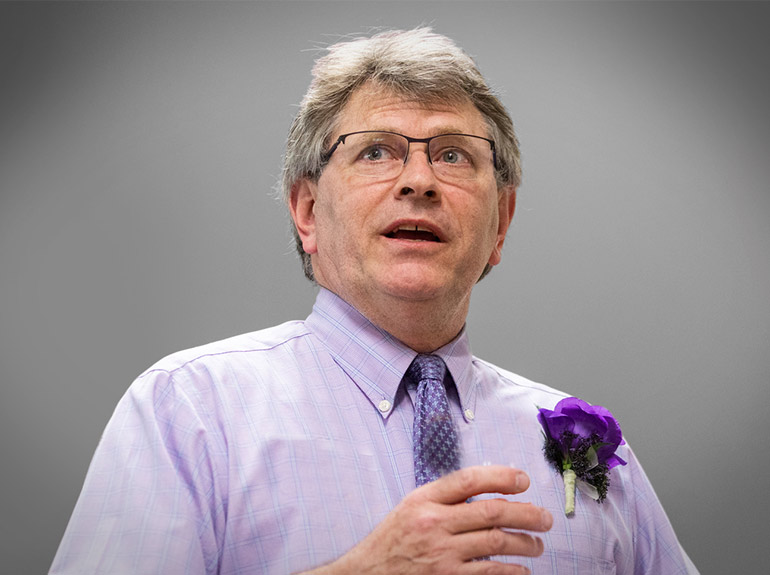
Virgil Wiebe
Professor Wiebe is the law school's faculty advisor for the J.D./MSW program. He is also a law professor who leads the Immigration Law Practice Group legal clinic.
The J.D./Master of Social Work program, offered in collaboration with the St. Thomas Morrison Family College of Health, is designed to provide you with both humanitarian and legal perspectives for your professional practice. An understanding of the practice of social work and the practice of law can be invaluable in the pursuit of justice for those in need. Attorneys with this unique skillset have the tools to develop and implement systemic change to protect vulnerable individuals and address unmet needs in our community.
The J.D./MSW program allows you to earn two graduate degrees in less time than it would take to earn them separately. To enroll, you must be independently accepted into both graduate programs. You should express your intent to complete the joint degree program when applying for admission. Once accepted, you will develop a plan for completing both degrees with the support of an adviser from each program.
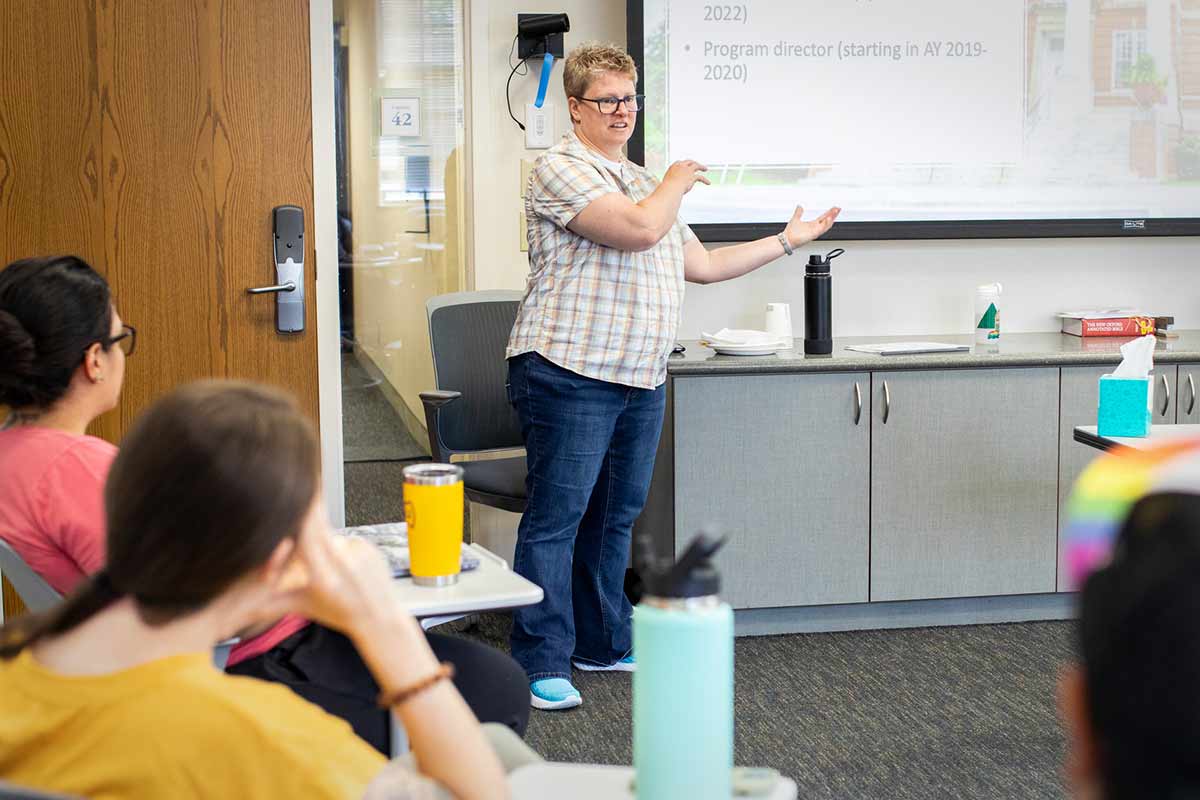
Master’s degree requirements
Students who enter the Master of Social Work program with a bachelor's degree in social work have “advanced standing.” Students who do not have a bachelor's degree in social work have “regular standing.”
Read on for details on how your standing impacts credit and fieldwork requirements.
Subject to change. The University of St. Thomas reserves the right to amend the degree requirements and to add to or delete from the list of courses that satisfy the degree requirements at any time.
J.D./MSW students must complete all of the graduation requirements for their J.D.—31 credits in first-year courses and no fewer than 45 credits in the second and third years, completing a minimum of 76 law credits. You will select elective courses from a variety of offerings to complete your upper-level requirements, with six credits counted toward the social work degree. Twelve additional social work credits are needed for the J.D. In other words, a total of 76 law credits and 12 social work credits are needed for the 88 total credits required for the J.D.
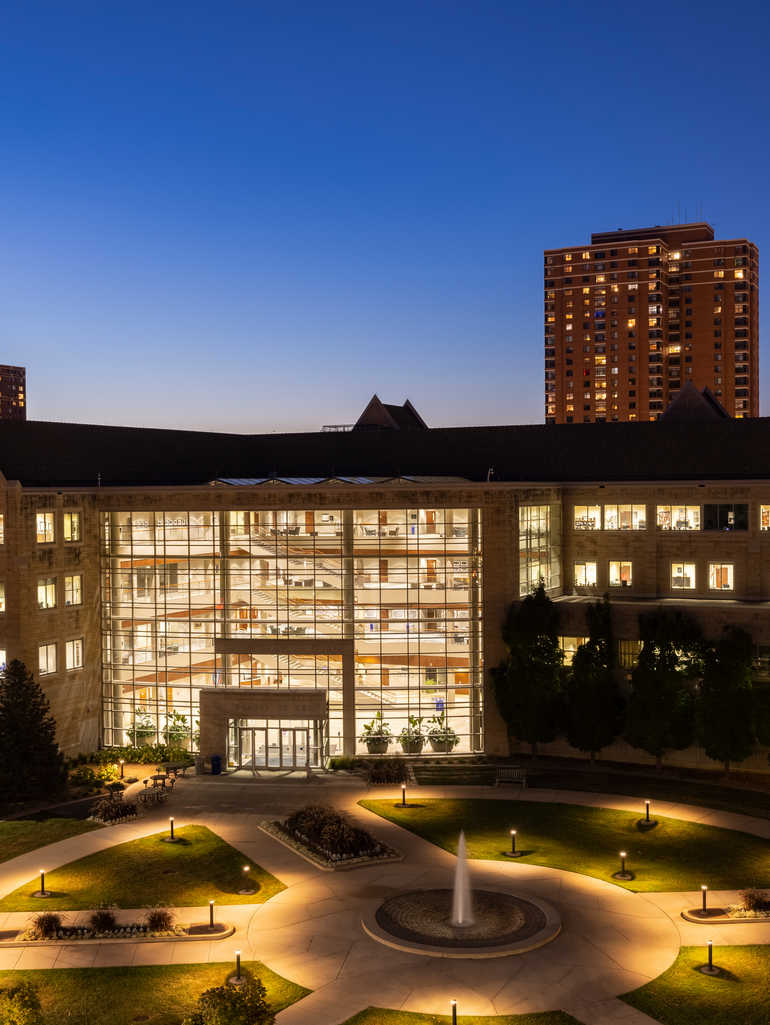
Regular Standing students are required to complete 56 semester credits, including 1,000 hours of field practicum. Advanced Standing students are required to complete 38 semester credits, including 600 hours of field practicum.
Three of the nine elective credits must be taken from the 600-level clinical elective offerings at the University of St. Thomas School of Social Work. The other two electives will be selected from relevant law electives. You may select additional social work electives but doing so would put you beyond the number of credits necessary for the dual degree.


Advancing Health Equity & Social Justice
The Morrison Family College of Health strives to address the shortage of culturally responsive health professionals who practice with social ingenuity and clinical excellence to improve health and community well-being while proactively advancing health equity and social justice.
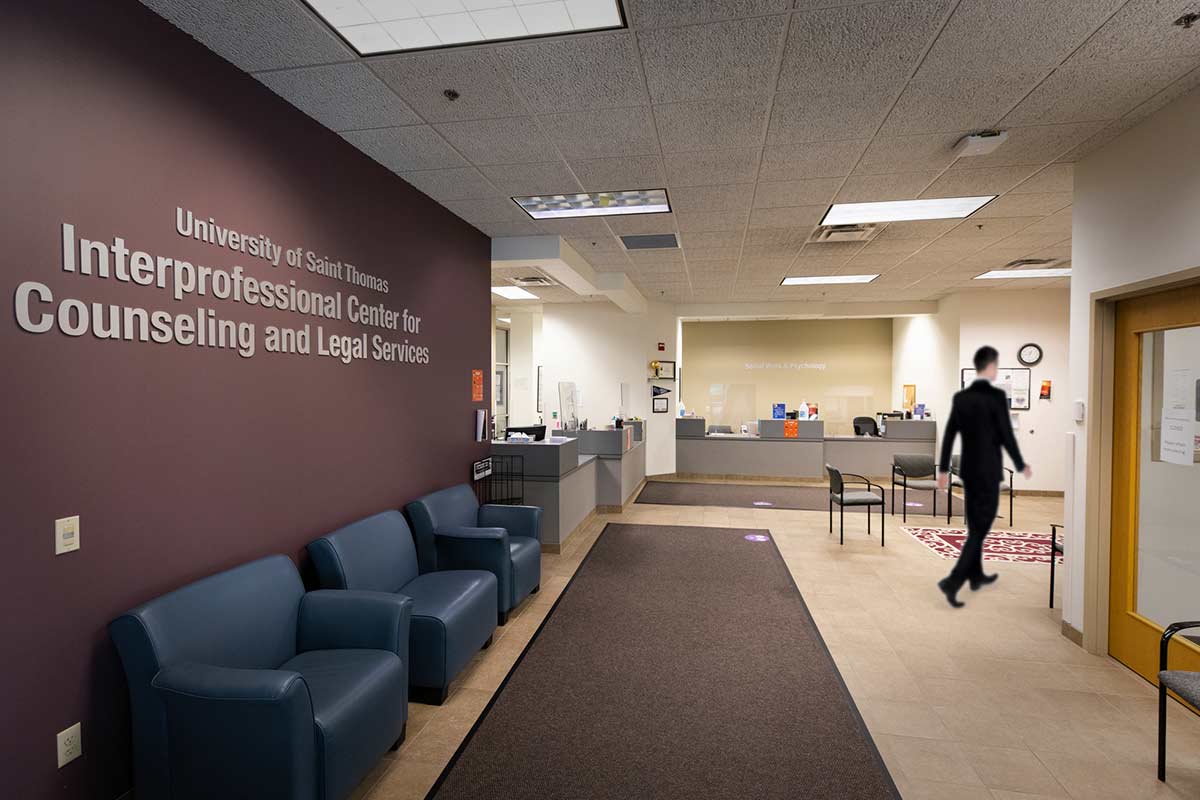
Holistic Services for the Underserved
The St. Thomas Interprofessional Center for Counseling and Legal Services, which houses our legal services clinics, provides clients with a holistic approach to addressing unmet needs. Under the guidance of the center's faculty, you may have the opportunity work side-by-side with students from the Morrison Family College of Health to provide representation and assistance to the underserved populations of the Twin Cities. Students from the social work and graduate psychology programs are often asked to assist on case strategy and provide services in collaboration with legal support. The interdisciplinary skills you develop in the clinic will allow you to see and understand a much broader picture of client service in the profession.

Professor Wiebe is the law school's faculty advisor for the J.D./MSW program. He is also a law professor who leads the Immigration Law Practice Group legal clinic.
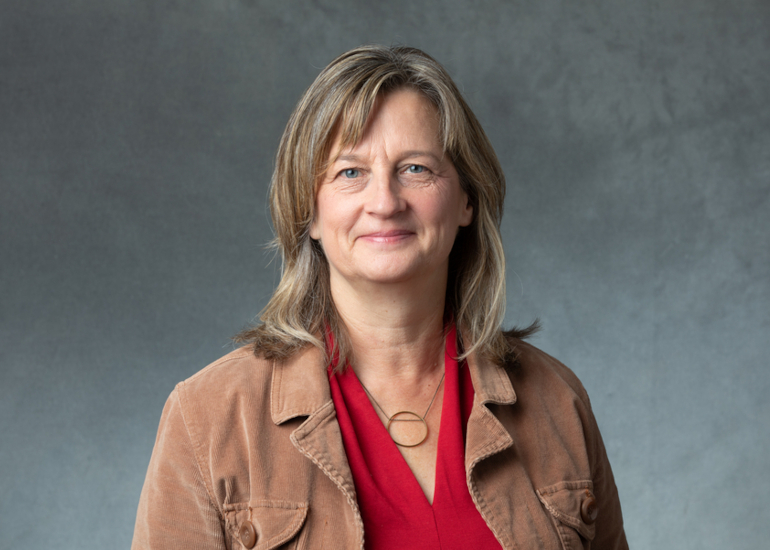
Professor Smith is the College of Health's faculty advisor for the J.D./MSW program. She is also a co-director of the St. Thomas Interprofessional Center for Counseling and Legal Services.
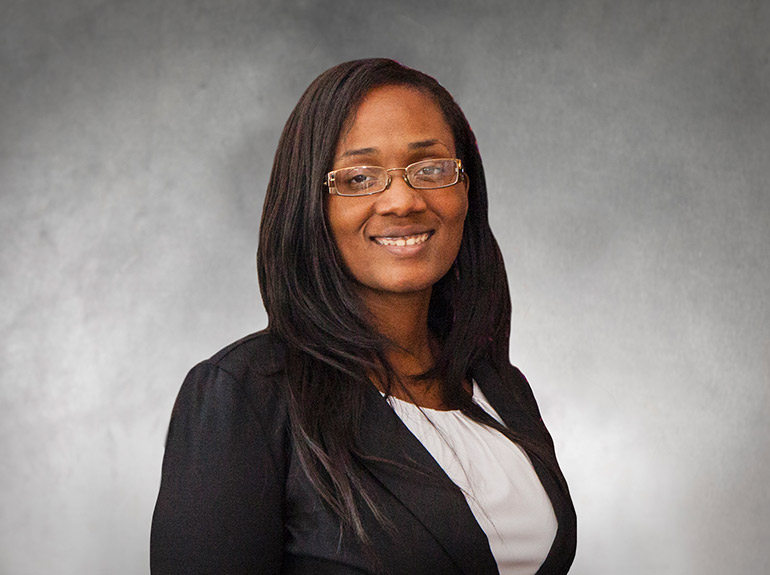
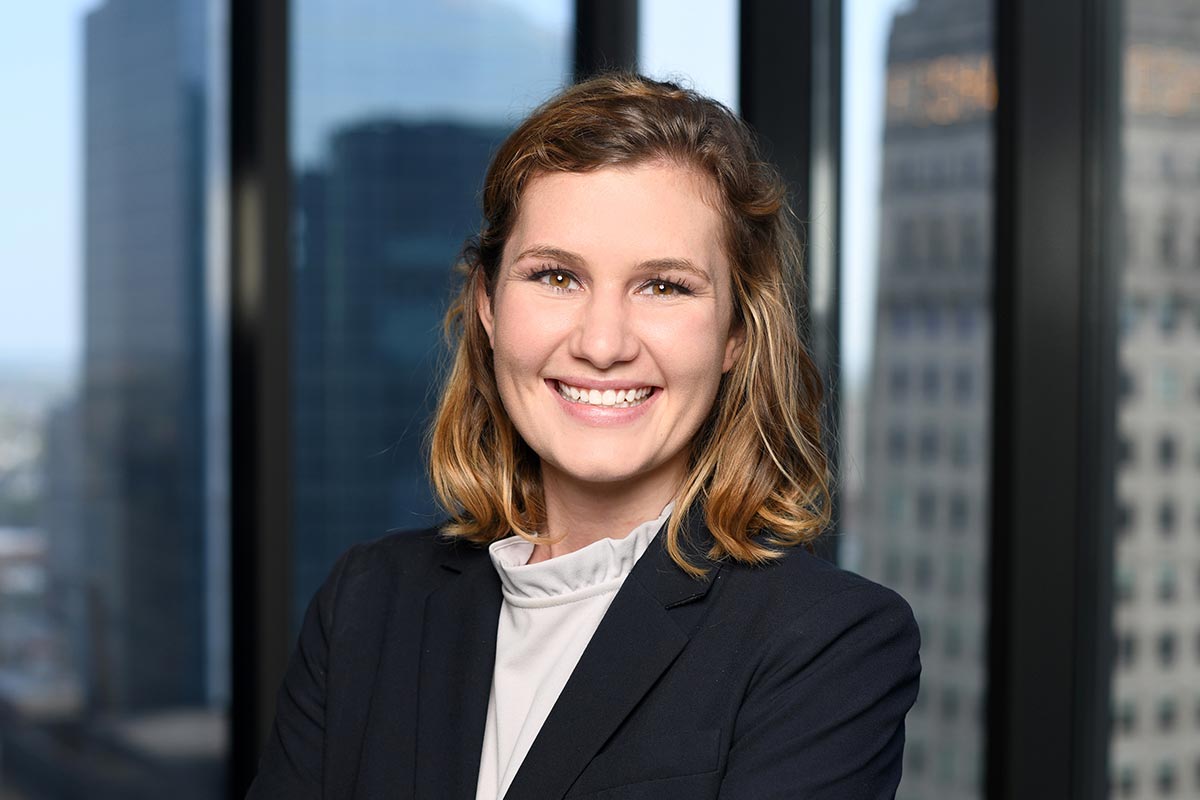
"I was told that the purpose of legal education is to teach application of the law, not transformation of it. However, at St. Thomas I learned both. Through unique opportunities in the clinic and classroom I was able to learn about mechanisms for social change which I use today."
"St. Thomas encourages and provides the resources for students to develop strong relationships with classmates and professionals that last beyond the time in the classroom."